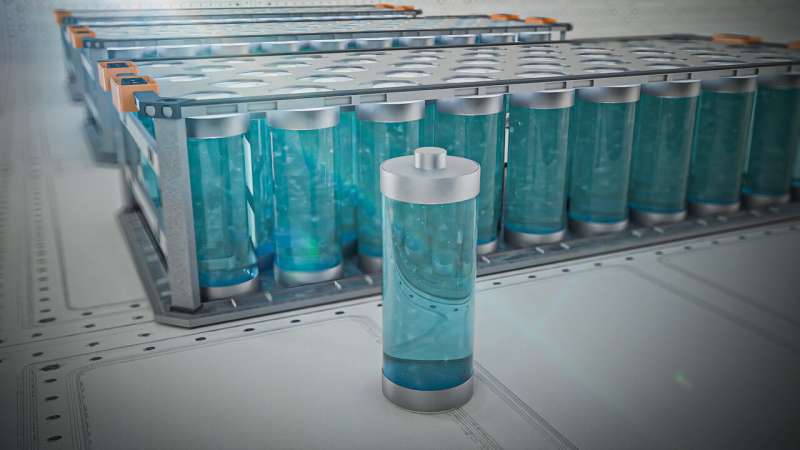KAUST researchers discover how common sulfate salts act as “water glue,” suppressing parasitic reactions and dramatically extending the lifespan of safe, sustainable aqueous batteries.

A simple salt may hold the key to unlocking longer-lasting, safer, and more cost-effective aqueous batteries—touted as a sustainable alternative for large-scale energy storage. A new study from King Abdullah University of Science and Technology (KAUST), published in Science Advances, reveals how sulfate ions dramatically enhance battery performance and longevity by taming water’s disruptive chemistry.
At the heart of any battery lies the anode, where critical energy-storing reactions occur. In aqueous batteries, which use water-based electrolytes, the anode is particularly vulnerable to parasitic side reactions triggered by “free water”—water molecules not tightly bonded with other atoms. These rogue molecules accelerate anode degradation and sap energy efficiency.
The team discovered that introducing zinc sulfate into the battery electrolyte transforms how water behaves. Sulfate ions effectively act as “water glue,” bonding with free water molecules and neutralizing their reactivity. This subtle shift in water structure leads to a tenfold increase in battery lifespan by suppressing parasitic reactions. While zinc sulfate was the primary focus, initial experiments suggest that sulfate ions offer similar stabilization for other metal anodes, pointing to a versatile and scalable solution.
According to the researchers , Sulfate salts are cheap, stable, and widely available—making this approach both scientifically sound and commercially viable.With the global market for aqueous batteries projected to surpass $10 billion by 2030, this advancement comes at a crucial time. Unlike flammable lithium-ion cells, aqueous batteries are inherently safer, making them ideal for integrating renewables like solar and wind into power grids.
“Our findings highlight the importance of water structure in battery chemistry—a parameter that’s long been overlooked,” said Prof. Alshareef, who also chairs KAUST’s Center of Excellence for Renewable Energy and Storage Technologies (CREST).

